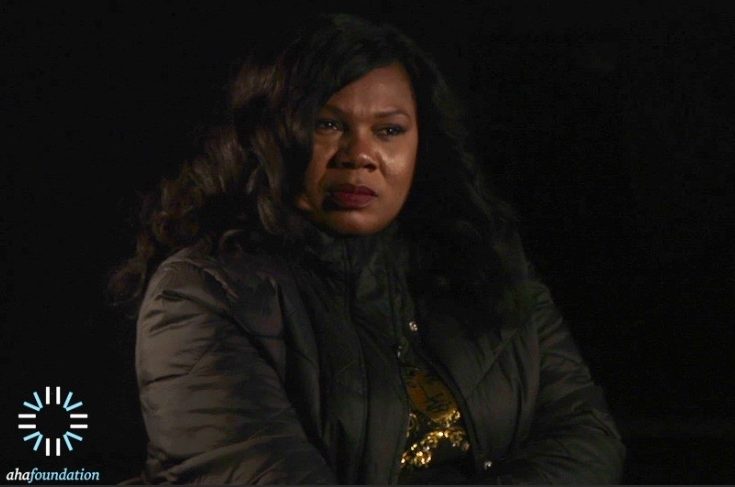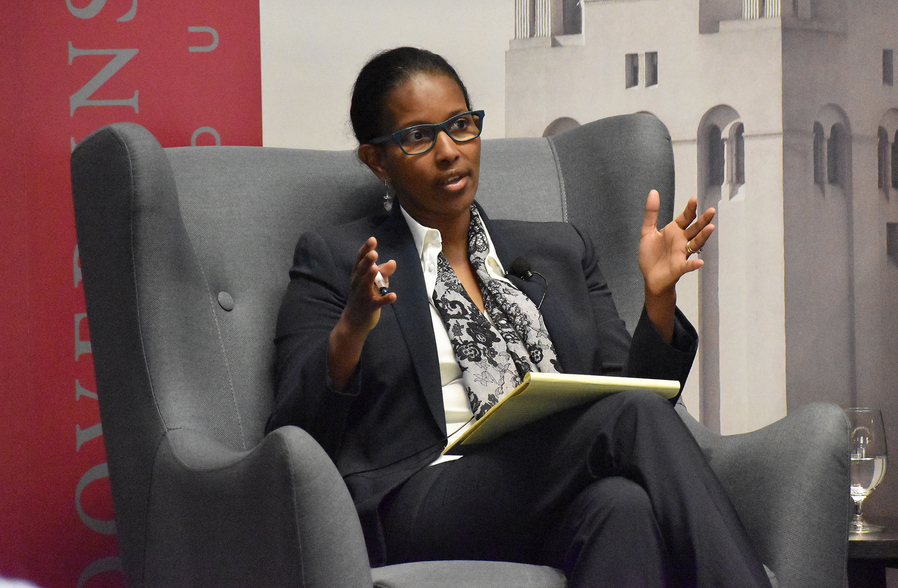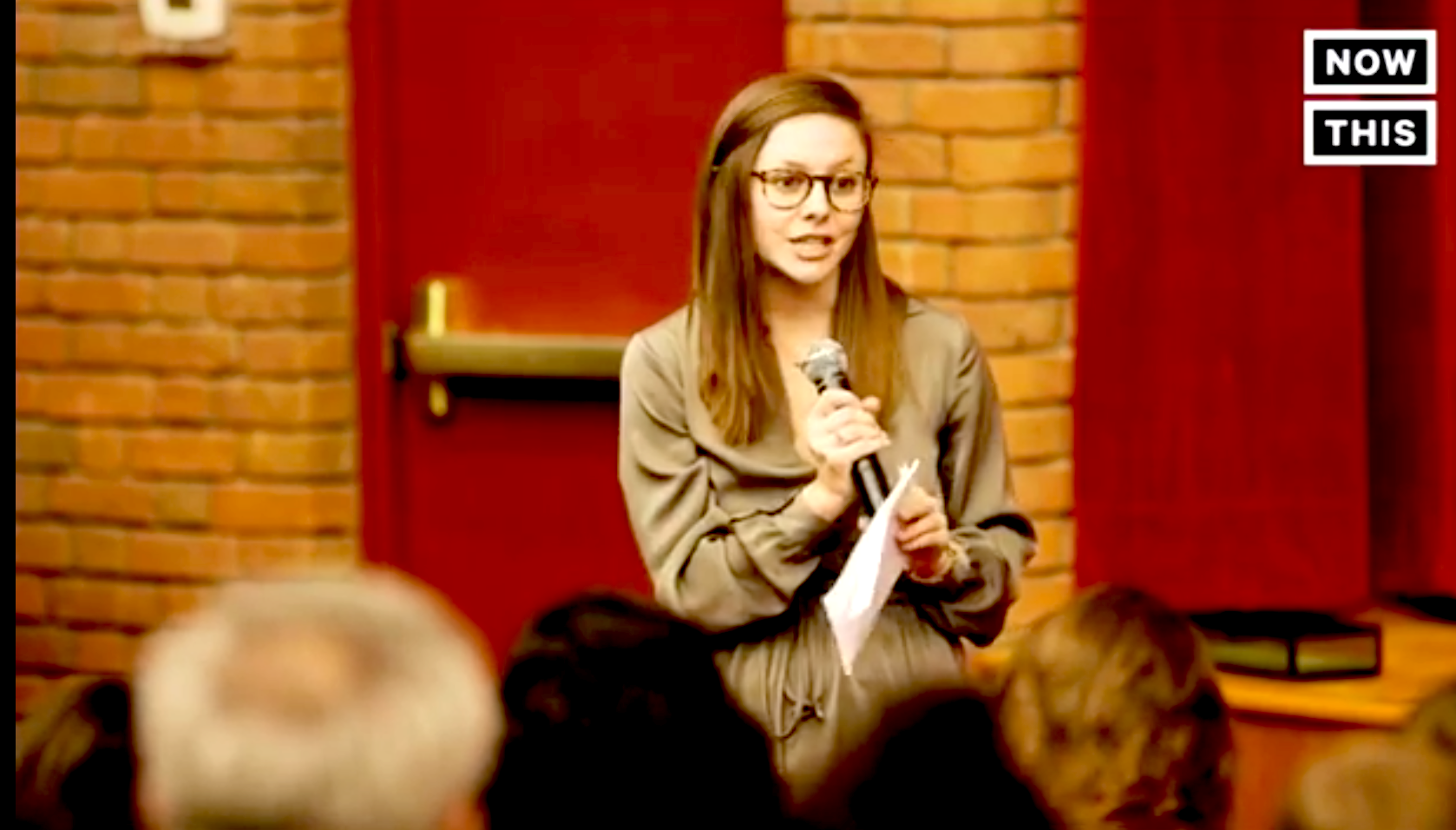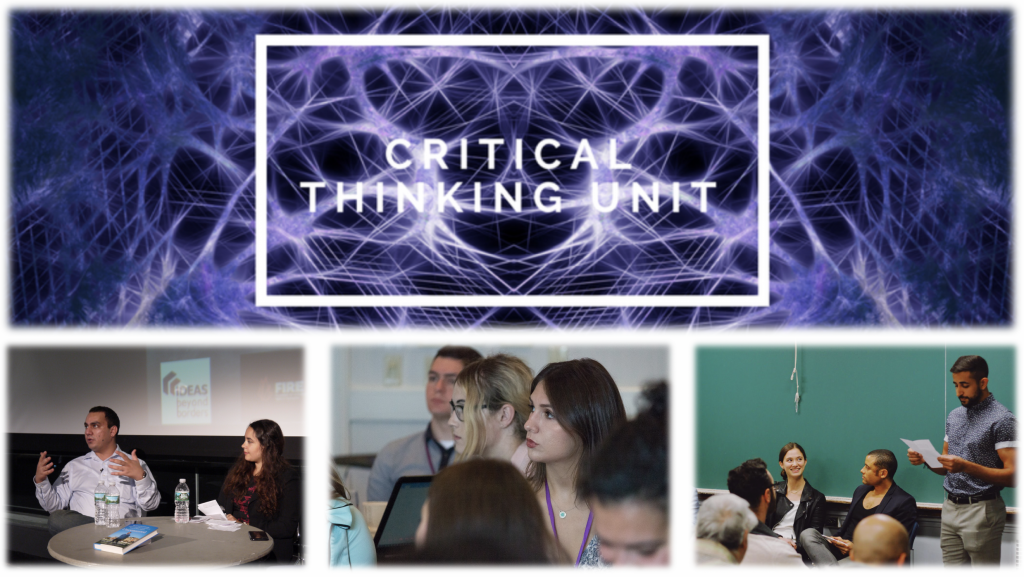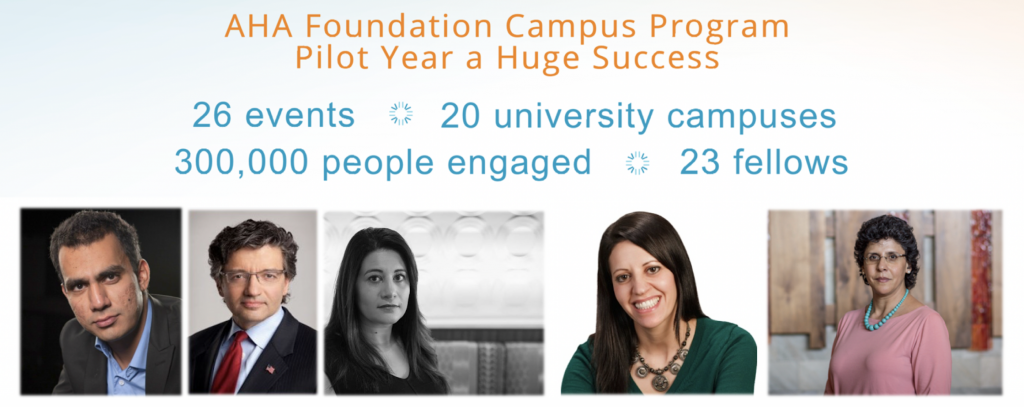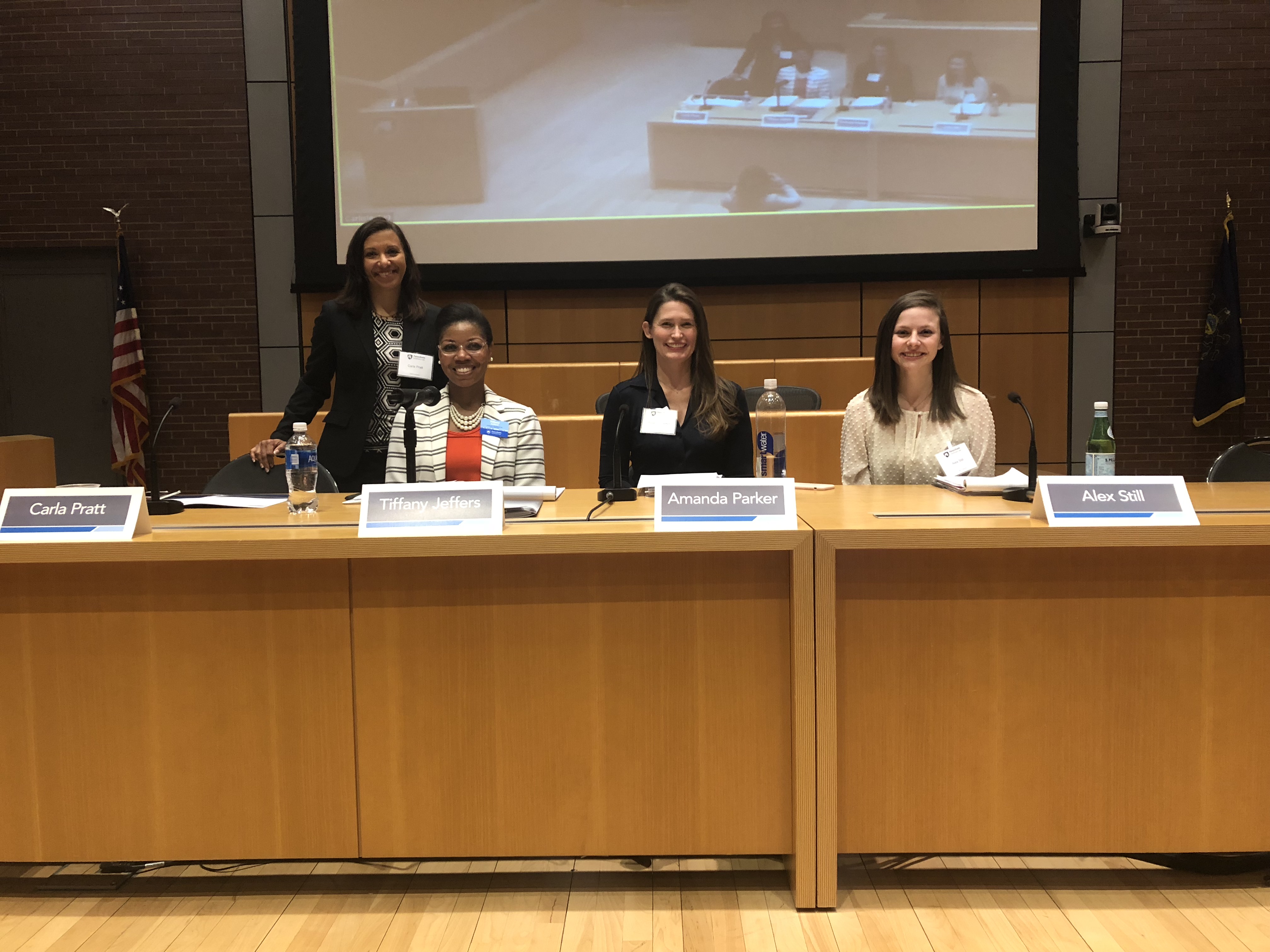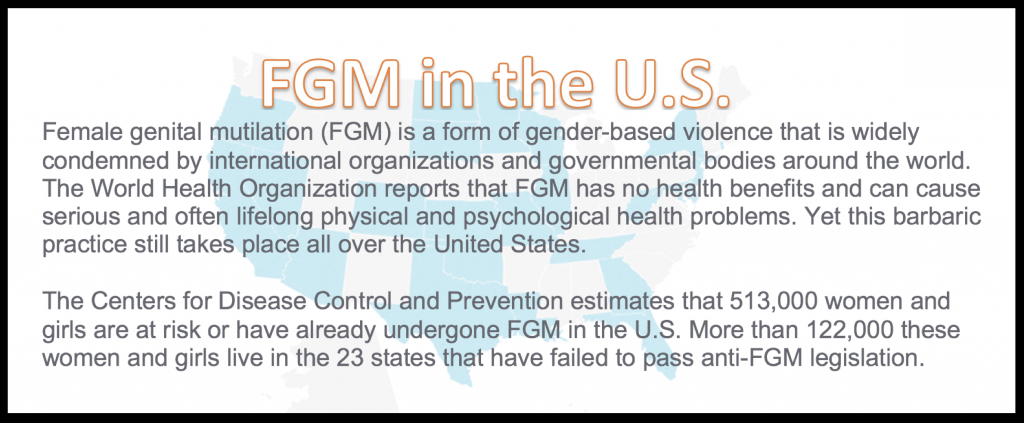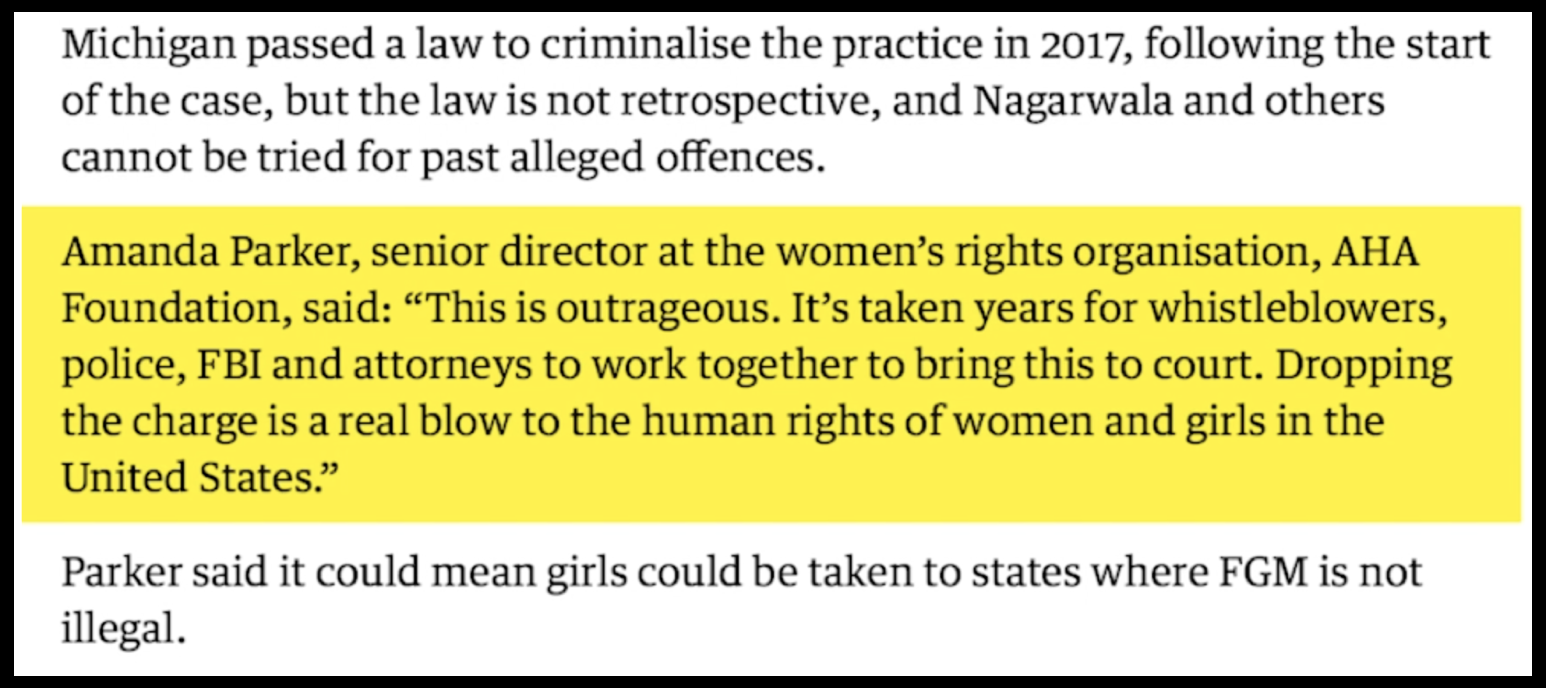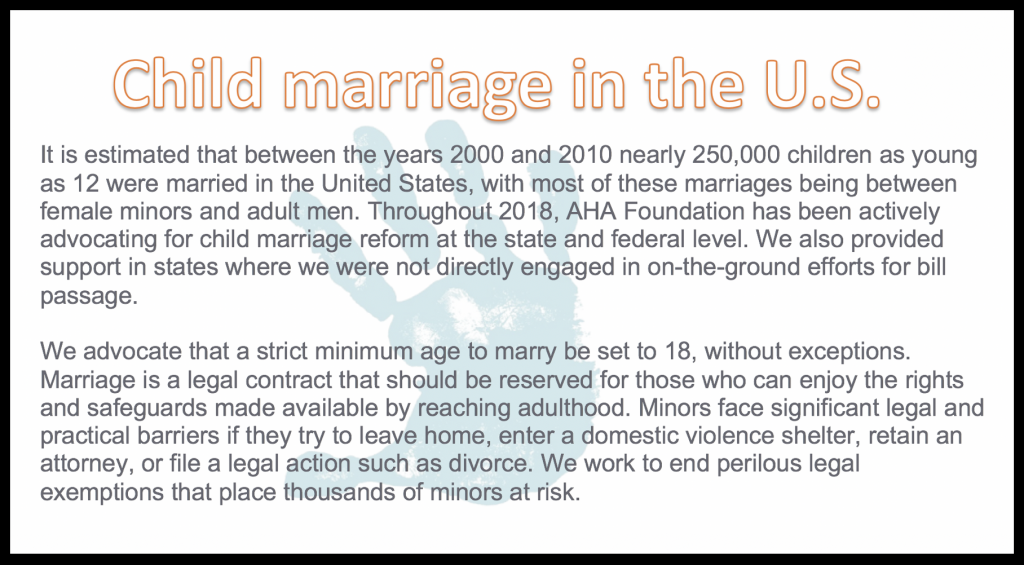Annual Report 2018: A Year of Triumphs and Setbacks Charts a Pathway for a Bold 2030 Vision
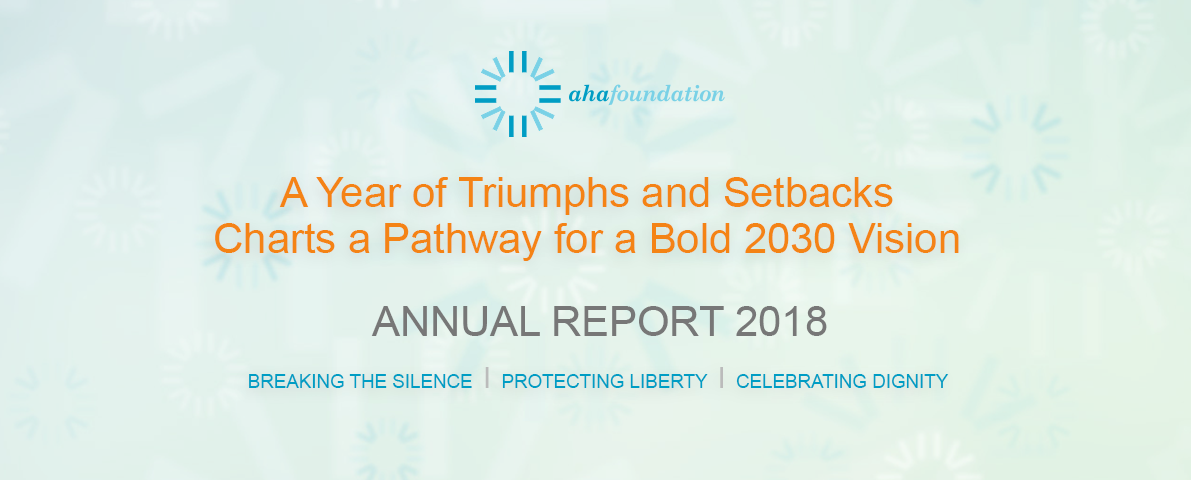
Over the past ten years, AHA Foundation has laid the groundwork for strong, results-driven programs that fight oppression and protect the rights of women and girls in the U.S. In 2018, we set a pathway for expanding our work and amplifying the life-saving impact of our efforts.
Both our accomplishments and setbacks in 2018 reflect AHA Foundation’s commitment to the ambitious goals we have set for 2030. Our experiences this year are a testament to the hard work that must be undertaken in order to achieve our vision. None of this would have been possible without the engagement and loyalty of our supporters.
We envision the United States as a country where, by 2030, all states have laws that protect girls from female genital mutilation (FGM) and child marriage, and strong federal provisions add a further layer of security. We envision a nation where each girl or woman facing abuse in the name of culture or religion can find an empathetic ear and a path to safety. We look towards a future where dangerous ideologies that endorse persecution and violence are relegated to the past.
In 2018, we continued, state-by-state and on a national level, to break the silence on abuses caused by harmful traditional practices that are alive and well in the U.S. Through our speaking engagements across the country, we exposed the dangerous trends that threaten free speech and ideological diversity in public discourse. We fought for liberty by empowering students to nurture critical thinking in their universities. We celebrated dignity by fighting for laws that protect the rights of women and girls facing oppression and supported individuals in their quest to live a life free from brutality.
We will continue to do this work until that future we envision is reality.
BREAKING THE SILENCE
At AHA Foundation, we are steadfast in our commitment to breaking the silence and bringing ideas worth fighting for to forefront of public discourse. Our founder, Ayaan Hirsi Ali, refused to stay silent in the face of Islamism and traditional practices that oppress and abuse women and girls. She risked life and limb to give voice to the millions of women and girls subjected to culturally-induced injustices and to combat the malicious forces that threaten Enlightenment ideals.
AHA Foundation possesses that same heartfelt commitment to ideas that affirm the freedom, rights, and security of women and girls. We are breaking the silence for all people who desire to live a life of respect and self-determination. Through our media campaigns and educational outreach, AHA Foundation and Ayaan Hirsi Ali are breaking the silence on FGM, honor violence, forced and child marriage, and Islamism. In 2018, our messaging reached hundreds of thousands.
.
Breaking the silence through media campaigns
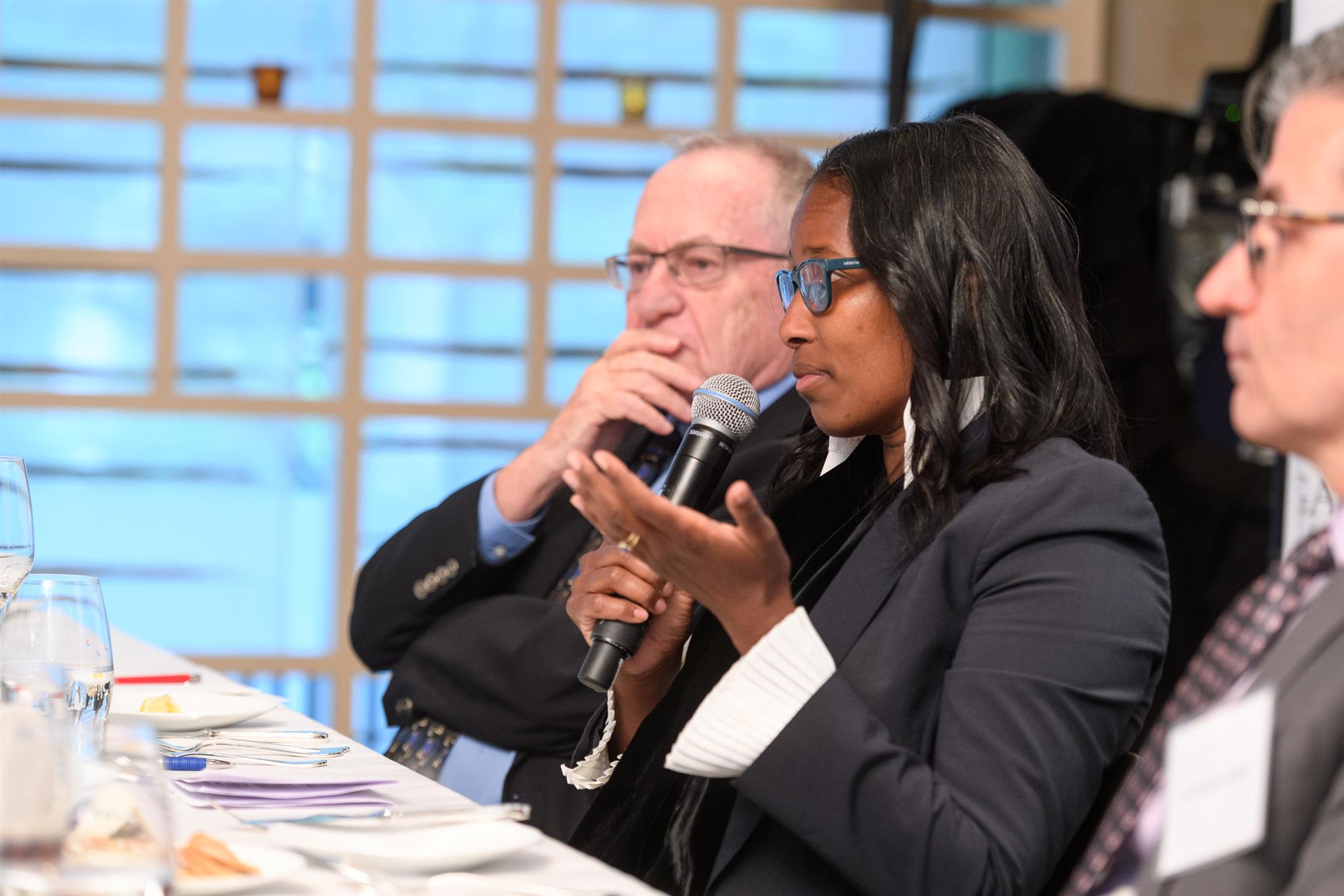
Ayaan Hirsi Ali with Dr. Zuhdi Jasser and Alan Dershowitz at a Symposium Hosted by the Gatestone Institute
This year, AHA Foundation and its founder, Ayaan Hirsi Ali, published a number of articles and op-eds in major media publications, including PBS, the New York Post, The Wall Street Journal, and the Hoover Institution online journal, Defining Ideas.
Through our 2018 media campaigns, hundreds of thousands learned about the issues of FGM, child marriage, Islamism, and the ongoing threats to women’s rights around the world.
Our hard-hitting message is pivotal in bringing truth to the public at large and we remain dedicated to bringing our causes to the forefront of public consciousness and debate on all sides of the political spectrum.
After a district court judge ruled that the federal law criminalizing FGM was unconstitutional, AHA Foundation’s swift denunciation of the decision was issued in November, and featured in multiple news outlets including, The Guardian, the Associated Press, The Detroit News, the Business Standard, ABC News, USA Today, and The New York Times. Overall, this release, combined with social media commentary, resulted in more than 33 pieces of national and international media reporting across print, online and broadcast channels. Ayaan’s tweets responding to the news received attention from tens of thousands of supporters and, over just a two-week period, AHA Foundation’s social media reached 30% more users online than normal. In the report, our team reviewed legislation in each U.S. state and assigned them a grade based on the strength of their FGM legislation. Over half of the states received a failing grade and only one earned an A. The report also counters the growing acceptance of “ritual nicks,” as a solution to ending FGM. At AHA Foundation, we call for zero tolerance of this harmful practice because the ‘nicking option’ may still cause harmful physical and psychological consequences, and its underlying reasoning – to control the sexuality of women and girls – is unacceptable no matter the scope of inflicted damage. Following the publication of our FGM report, our founder, Ayaan Hirsi Ali, was featured on Firing Line with Margaret Hoover. In this interview, Ayaan revealed the harsh reality of FGM in the U.S. and spoke about ways the American legal system can better protect girls from this harmful cultural practice. Ayaan compared the movement to end FGM to the #MeToo movement and spoke about the similarities and differences between the two. In May this year, Ayaan and Dr. Zuhdi Jasser, a Muslim activist and American physician, had the opportunity to debate Alan Dershowitz, a renowned U.S. attorney, on FGM criminality in the U.S. and the argument for zero-tolerance of the practice. AHA Foundation works with survivors who wish for their stories to be heard in order to bring the issues of FGM and child marriage to the public. Interviews and articles are periodically published on our website that feature brave women who are determined to raise awareness with their own stories of endurance. Ayaan appeared on three podcasts including The Jamie Weinstein Show, The Femsplainers, and The Hoover Institution Fellow Talks. In these podcasts, Ayaan described her childhood experiences in countries where female subjugation is rampant, and raised awareness about FGM in the U.S., an abuse she survived as a child. She also called for a reformation in Islam fostered by critical thought and open dialogue. Ayaan wrote an article titled “The ‘No Platform’ Brigade” in the Hoover Institution journal, Defining Ideas. In it, Ayaan condemned the increasing tendency, particularly on college campuses, to silence Muslim dissidents and critics of Islam. She argues that, in order to have a meaningful debate, Americans need to understand the distinction between Islam, a spiritual belief system, and Islamism, a repressive political ideology. In her Wall Street Journal op-ed titled “Will Saudi Arabia Free Its Women?” Ayaan brings to light the struggles women encounter in Saudi Arabia. Though the new crown prince, Mohammad bin Salman, has promised modernization of the country, namely the expansion of women’s rights, Ayaan warns that none of these rights will have real meaning if Saudi Arabia’s guardianship laws are still in place. Ayaan wrote an op-ed for the New York Post titled “The anti-woman violence feminists are afraid to confront.” In it, she praises the #MeToo movement for cutting across party lines and focusing on exposing all inappropriate behavior regardless of political affiliation. She also points out, however, that this inclusivity does not extend to other women’s issues such as FGM, forced marriage, and honor violence, and that these issues still remain largely untouched by the current feminist movement.
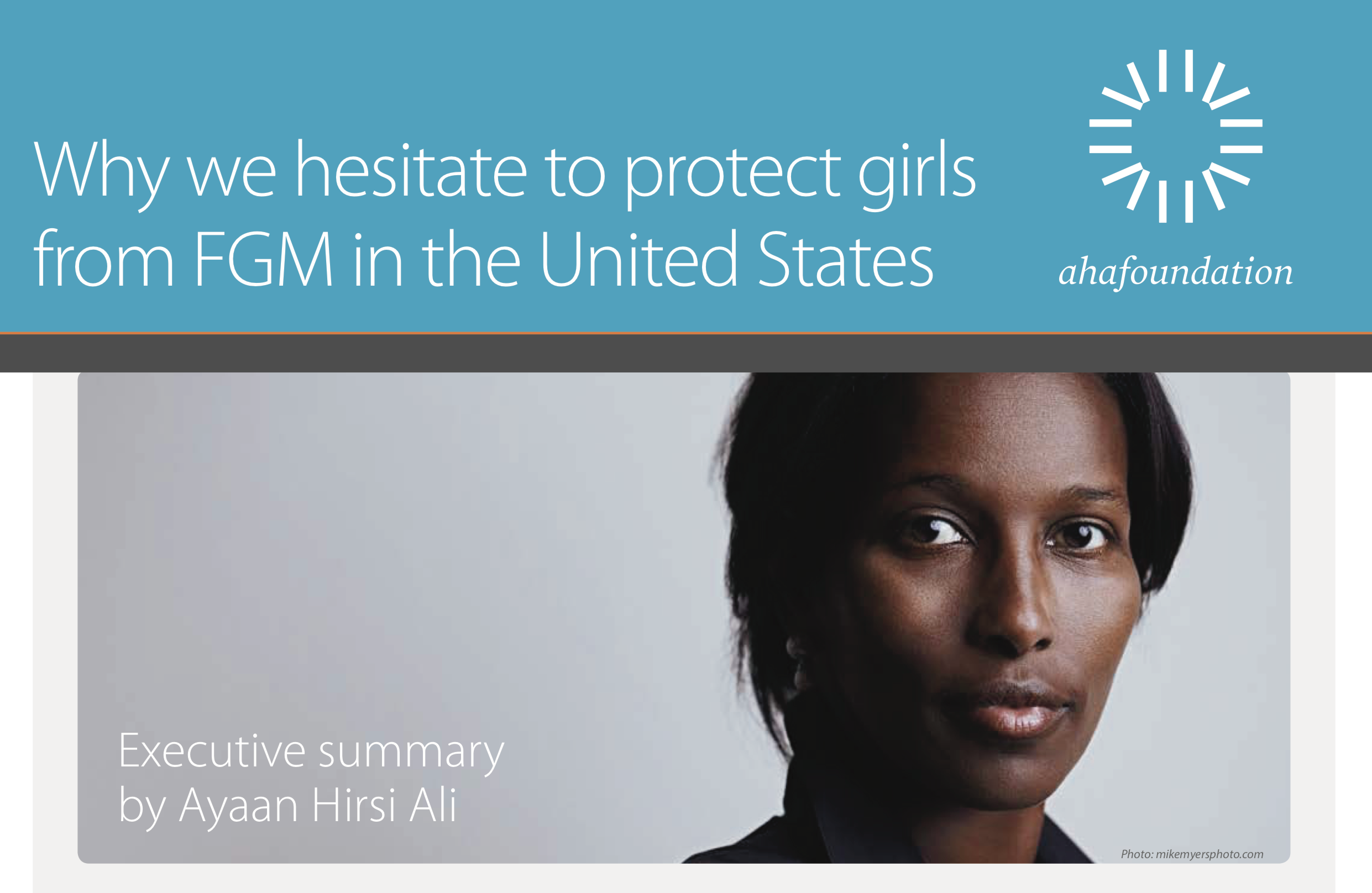 AHA Foundation released its report, “Why we hesitate to protect girls from FGM in the United States,” which provides a grading scale analyzing each state’s anti-FGM legislation and calls for zero tolerance of FGM. The report reached over 330,000 people on social media alone and has been cited throughout the year by government officials, organizations, and legislators seeking to end the practice of FGM in the U.S.
AHA Foundation released its report, “Why we hesitate to protect girls from FGM in the United States,” which provides a grading scale analyzing each state’s anti-FGM legislation and calls for zero tolerance of FGM. The report reached over 330,000 people on social media alone and has been cited throughout the year by government officials, organizations, and legislators seeking to end the practice of FGM in the U.S.
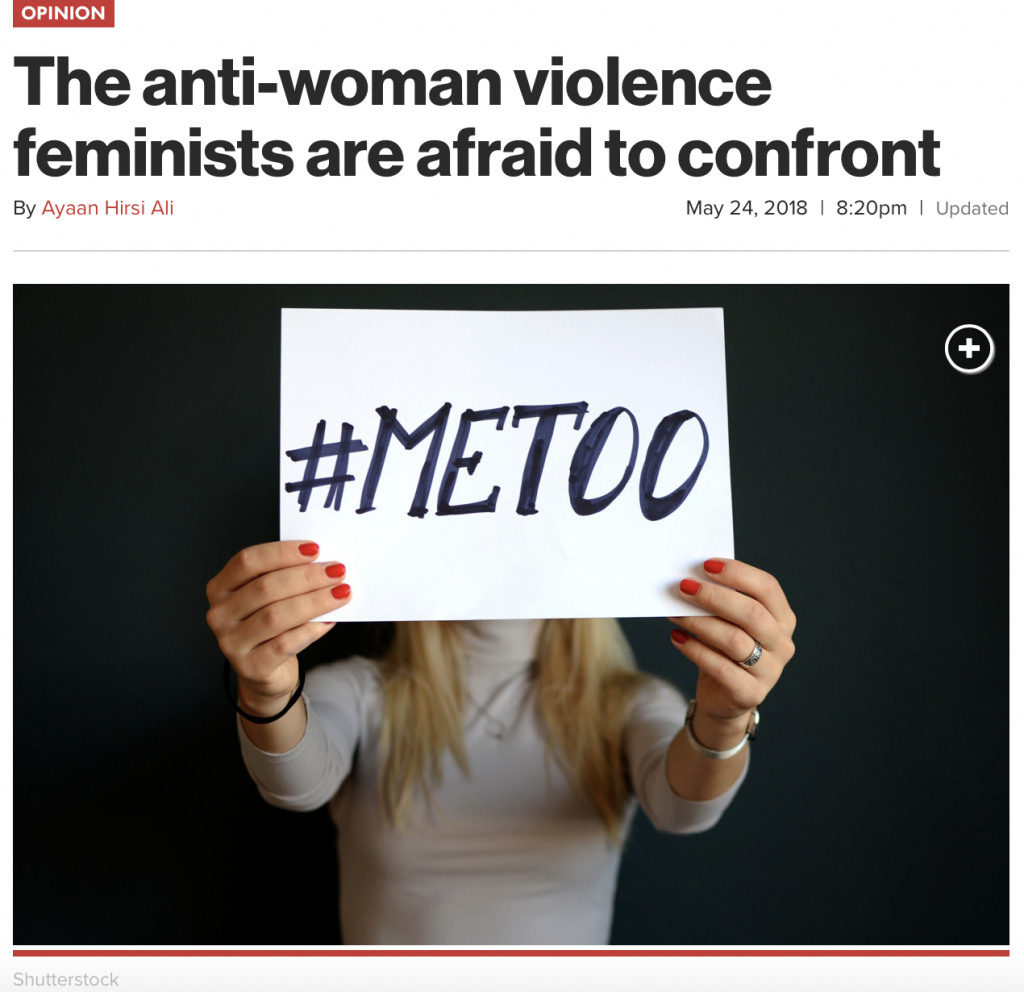 AHA Foundation’s Senior Director, Amanda Parker, was featured in a PBS Frontline article titled “Florida Moves to Ban Marriage Before the Age of 17,” where she discusses Florida’s attempts to end child marriage. Although Florida legislators did limit child marriage in the state, Amanda criticizes the legislation because it leaves a large segment of the at-risk population, namely 17-year-old girls, at risk of child marriage.
AHA Foundation’s Senior Director, Amanda Parker, was featured in a PBS Frontline article titled “Florida Moves to Ban Marriage Before the Age of 17,” where she discusses Florida’s attempts to end child marriage. Although Florida legislators did limit child marriage in the state, Amanda criticizes the legislation because it leaves a large segment of the at-risk population, namely 17-year-old girls, at risk of child marriage.
.
Breaking the silence through trainings and conferences
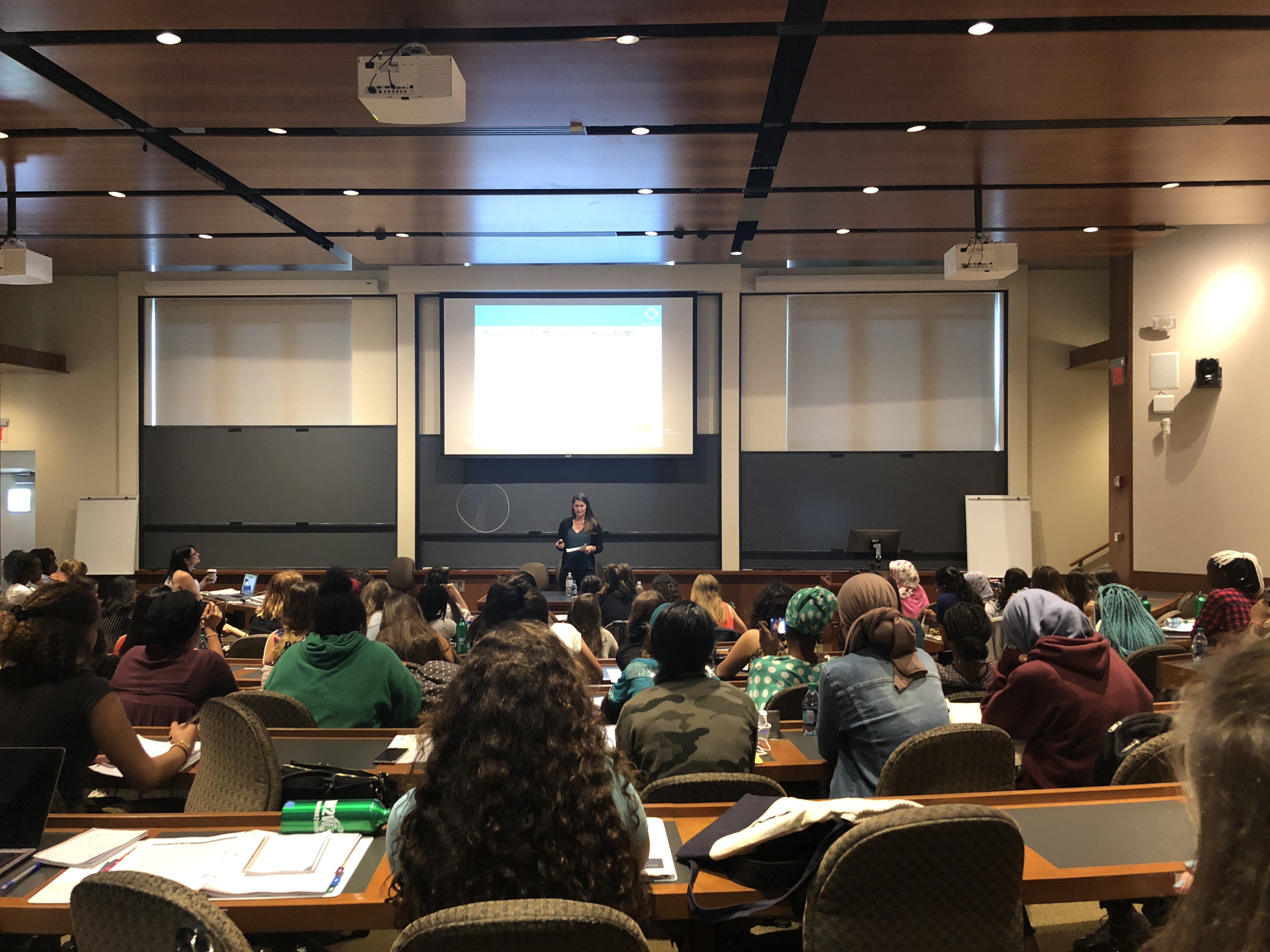
Amanda Parker at the Women2Women International Leadership Program
In order to address an alarming proficiency gap surrounding FGM and other forms of harmful cultural practices among professionals, AHA Foundation has developed specialized educational instruction for service providers and other key players likely to encounter survivors and at-risk women and girls.
Through training sessions, conferences, and other informational venues, AHA representatives have spoken to hundreds in-person and have reached hundreds of thousands virtually.
These efforts are a central facet of our work and can make a difference in the lives of thousands of women and girls across the U.S.
Our former Program & Policy Associate, Alex Still, spoke at a United Nations conference on child marriage where she discussed the connection between child marriage and honor violence. This conference was live-streamed by the news outlet, NowThis Her, and over 100,000 people watched the video.
AHA’s Senior Director Amanda Parker presented at the Institute on Violence, Abuse & Trauma (IVAT) conference in San Diego. She co-presented with psychotherapist Joanna Vergoth on the harmful physical and emotional effects of FGM to a group of about 50 social services participants from around the U.S.
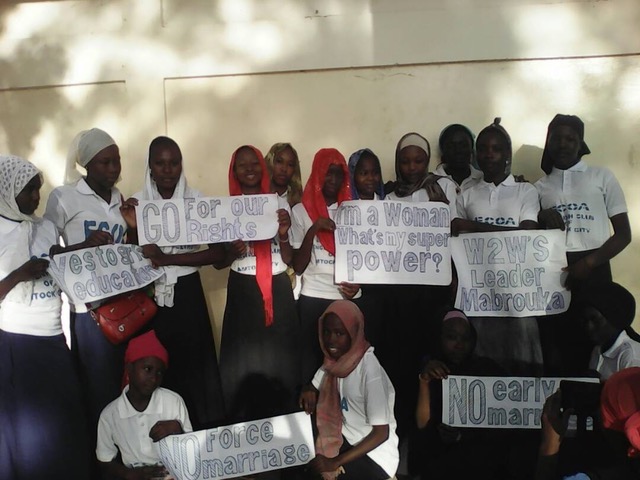
Chadian Teens Celebrate Women’s Rights and Anti-FGM Efforts
For the second year in a row, Amanda Parker spoke to a group of 100 teenage girls from over 30 countries at the Women2Women International Leadership Program. She had the opportunity to teach about honor violence, forced marriage, and FGM, which many of these girls encounter frequently in their home countries. This unique opportunity allows for AHA Foundation’s ideas and values to spread worldwide.
A group of teenagers who were inspired by Amanda’s speech at the conference last year, organized and held an anti-forced marriage and child marriage conference in their home country, Chad.
The girls rated you [Amanda Parker] as one of their favorite speakers. The information you presented hit home for some and surprised others. And, when I say ‘surprised others’ I mean they didn’t know that FGM and forced marriage was happening in their own countries. It was eye opening.
– Tricia Raynard, Empower Peace, commenting on AHA Foundation Amanda Parker’s Women2Women International Leadership Program presentation in Boston
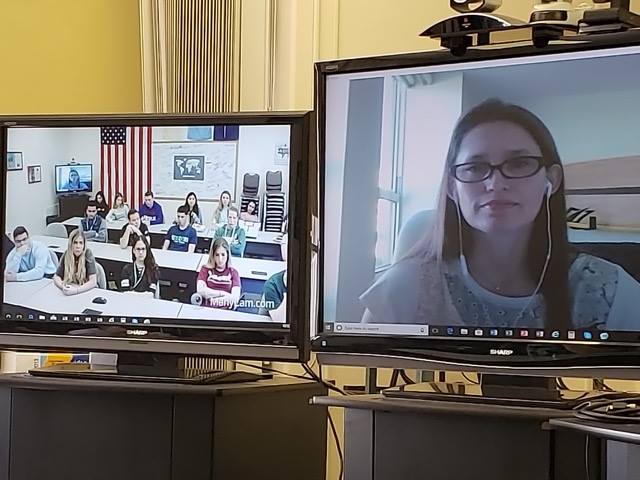
Amanda Parker Educating Passaic Valley High School Students on AHA Foundation’s Work
AHA Foundation published a blog by Sherice Hooks, a doctoral student in clinical psychology, where she calls attention to gaps in psychology programs involving culturally-motivated violence. Sherice points out that traumatic experiences such as FGM, honor violence, and forced marriages have all been omitted in academic discussions as sources of trauma for women and girls. A professor that read the article reacted positively and proceeded to incorporate a segment on treating survivors of FGM in her class material.
We taught two classes at Passaic Valley High in Little Falls, New Jersey to educate students on AHA Foundation’s work and our issue areas that focus on women’s rights.
PROTECTING LIBERTY
AHA Foundation champions human rights and individual liberties above cultural, social, or religious imperatives. This means liberty from FGM, honor violence, and forced and child marriage. It also means liberty to challenge the ideology of Islamism with rational, Enlightenment thought, and the implementation of new strategies to fight in the battle of ideas.
.
University Campus Fellowship Program
In late 2017, AHA Foundation launched a campus program, the Critical Thinking Fellowship (CTF), in order to combat the lack of ideological diversity on North American campuses. The program alerts and energizes students on issues involving human rights and free speech, particularly as they relate to Islamic extremism and Islamism. To date, our events have reached over 300,000 viewers in-person and online.
Without access to funds, vetted speakers, and support, it can be extremely difficult for students to invite quality speakers to campus. CTF is an amazing opportunity to access a full package of support from professionals.
– Andy, CTF fellow
Being a Critical Thinking Fellowship fellow has given me amazing learning opportunities, and has helped me meet some of the most incredible people I know.
– Yusuf, CTF fellow
This year, AHA Foundation has made remarkable headway with its CTF program. In the short period of time since the program’s launch, we have expanded to 20 college campuses in the U.S. and Canada, including Columbia University, Notre Dame, Harvard, Stanford and UC Berkeley. An overview of past events is available on the AHA Foundation website; supporters now have access to over 25 summaries featuring photos, videos, and event highlights.
The talent and hard work of our team, fellows, and contributors can scarcely be overstated. We take pride in the incredible progress this program has made in just short period of time.
Since January 2018, CTF has added 18 new fellows, bringing the total to 23 fellows on 20 campuses across the U.S. and in Canada. In just a short period time, our events have reached over 300,000 in-person and online. One CTF fellow, Natalie Bao Tram Le, of Harvard University, received an award from FIRE (the Foundation for Individual Rights in Education) for her work in cultivating robust discourse and civil debate on campus.
AHA Foundation launched an updated Campus Program page on its website, featuring a map of CTF campuses, posts about upcoming CTF events, and a thorough list and summary of past CTF events. This year we also launched the CTF Facebook and Twitter pages.
By the end of 2018 CTF fellows will have hosted 26 events, with participation from 17 notable speakers. The contentious nature of the topics covered have stirred both praise and controversy.
At Duke University, our CTF event was covered by four articles in the student newspaper and multiple national outlets due to the storm sparked from a lecture given by Muslim activist and best-selling author, Dr. Zuhdi Jasser. An active and nationally-recognized student organization led protests against Dr. Jasser speaking on campus, and raised general opposition to the voices of Muslim reformers being heard.

Faisal Saeed Al Mutar, Flemming Rose, Mustafa Akyol, and Jacob Mchangama at Harvard University, “Dissent from Minorities Within Minorities”
CTF has partnered with public intellectuals, reformers, and activists who share our dedication to truth, liberty, and ideological diversity:
Faisal Al-Mutar came to the U.S. in 2013 as a refugee and began a career in human rights activism. In 2017, he founded the NYC based, non-profit Ideas Beyond Borders (IBB). The organization’s goal is to stop extremism at its root. One of their main projects includes translating books professing enlightenment ideas into Arabic in order to break down a language barrier to the free exchange of ideas.
Mustafa Akyol is a Turkish contributing writer to the International New York Times and the author of Islam without Extremes: A Muslim Case for Liberty.
Yasmine Mohammed is an Arab-Canadian university educator and author who, though born and raised in North America, was raised in a traditional Muslim upbringing and fled a forced marriage to a member of Al-Qaeda.
Dr. Elham Manea is a Swiss-Yemeni Muslim reformer, human rights activist and academic who researches and speaks out against Islamism. She works at the Political Science Institute at the University of Zurich and is a consultant for Swiss government agencies and international human rights organizations.
Muhammad Fraser-Rahim is the Executive Director of North America for Quilliam International. He is an expert on violent extremism issues and a scholar on Africa.
CELEBRATING DIGNITY
AHA Foundation’s work is grounded in the belief that every human life possesses dignity and self-determination, which are sacred no matter one’s gender, origin, ethnicity, or creed. AHA Foundation has worked tirelessly to affirm the dignity of women and girls in the U.S. These efforts include direct assistance to survivors and at-risk women and girls, sharing our expertise through conferences and consultations, and legislative advocacy on both the state and federal level in order to pass laws that end child marriage and FGM once and for all.
Meeting the needs of women and girls in crisis
AHA Foundation’s direct work with women and girls in crisis remains a core component of our mission. Most of the women and girls facing threats of culturally-based violence suffer in silence, and in 2018, we have seen a large uptick in the number of individuals seeking help. We continue to work alongside these individuals to help keep them safe. AHA offers confidential, direct assistance to women and girls through our helpline, a referral system for medical services, counseling, legal support, and assistance to those seeking reconstructive surgeries.
The vital role of this Foundation is to embrace FGM victims and provide them with the spiritual and physical support. I wish to be a member of the AHA Foundation and help to inspire and empower survivors to be part of the change in the community.
– FGM Survivor in A Survivor Shares: When Female Genital Cutting Occurs, Childhood Ends and Trauma Begins
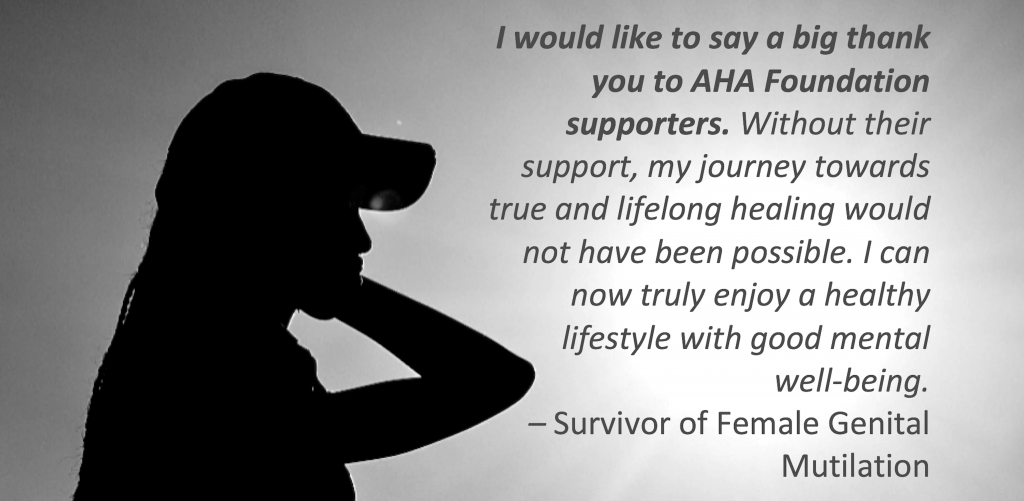
Many of the individuals contacting AHA Foundation were seeking assistance regarding forced marriage and FGM. In most of the cases of forced marriage, women and girls were fearful of being forced to marry by their family. In most of the cases of FGM, the women were seeking support after having survived the trauma.
This year, AHA Foundation has helped 56 women and girls through our direct assistance helpline and supported a young woman in need of FGM reconstructive surgery.
By the end of 2018, AHA Foundation will have offered direct assistance to 290 women and girls in need.
Conferences & Consultations
The majority of state and local institutions, service providers, and other protective organizations are ill-equipped to recognize and address the needs of women and girls at risk of culturally-motivated abuses. AHA Foundation fills these gaps by sharing our expertise through consultations and other educational venues. We know that every case is complex and requires multi-agency coordination to ensure the safety of each woman or girl involved. In 2018, we engaged community leaders and other principal actors and offered vital, culturally-sensitive instruction.
AHA Foundation’s Senior Director, Amanda Parker, and former Program & Policy Associate, Alex Still, spoke at Penn State Dickinson Law’s conference, “Crafting Legislative and Medical Solutions to Address Female Genital Mutilation Locally and Internationally.”
They offered a framework for model FGM legislation, provided insights on how to get FGM legislation passed at the state level, and gave an overview of what individual states are doing to protect women and girls from FGM.
Amanda and Alex were asked to join as expert advisors to “The FGM Legislation Project,” a student-run effort dedicated to developing state FGM legislation as well as an international protocol to address FGM on a global level.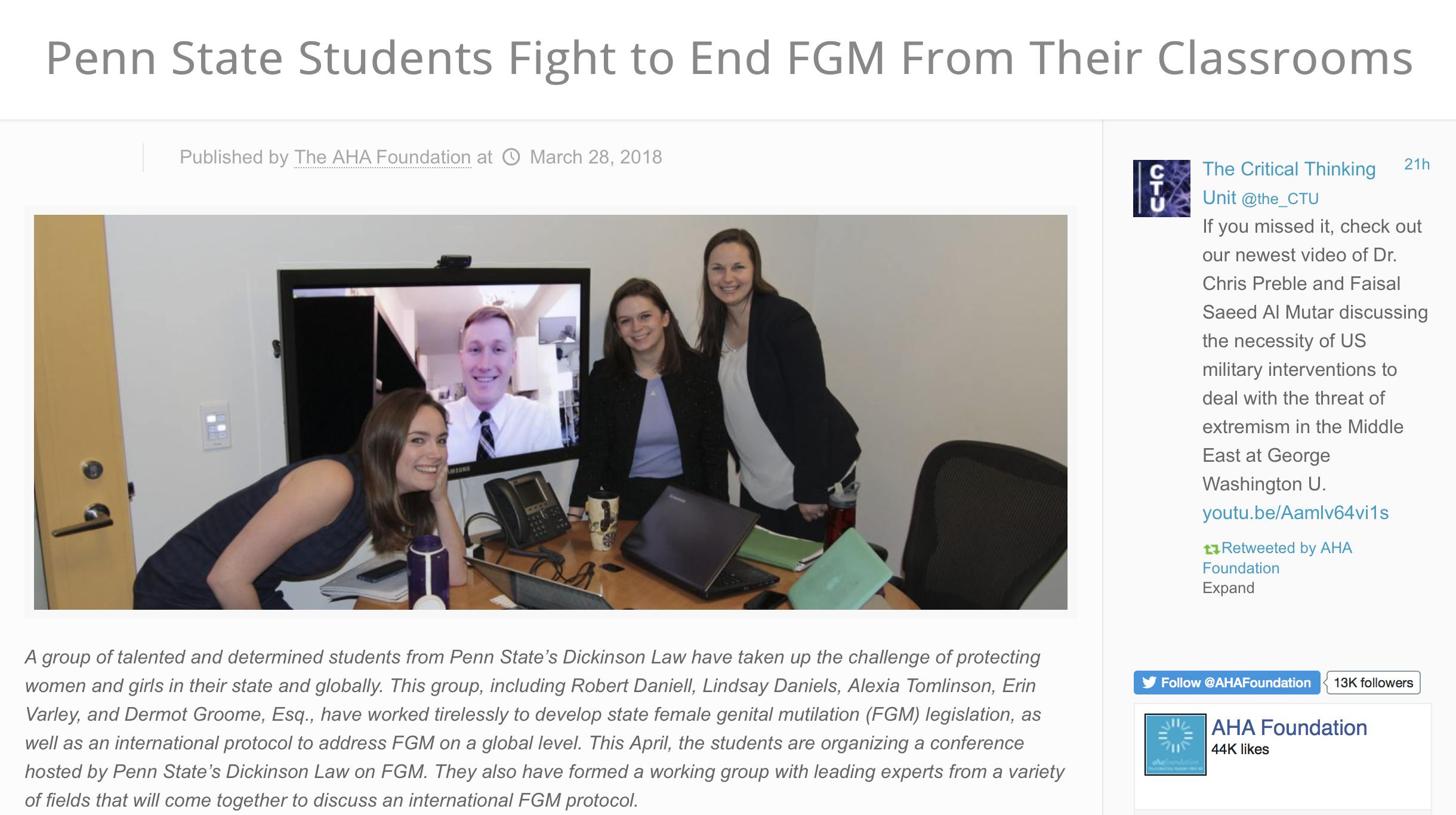
AHA Foundation participated in an expert consultation where leading figures in the fight to end FGM came from around the world to discuss challenges and solutions regarding FGM and mental health. This expert consultation provided AHA Foundation with an opportunity to collaborate with champions against FGM and to determine ways of moving forward in a collective effort.
Our Executive Director, George Zarubin, attended the Girls Not Brides coalition meeting in Washington, DC. This meeting discussed child marriage developments globally and the U.S. partnership to end child marriage. We also signed on with other Girls Not Brides members to support the Keeping Girls in School Act which aims to ensure the U.S. government continues breaking unique barriers that keep over 130 million girls out of school globally.
George attended a National Network to End FGM event at George Washington University that discussed innovative ways of using data to combat FGM.
Advocacy & Legislation
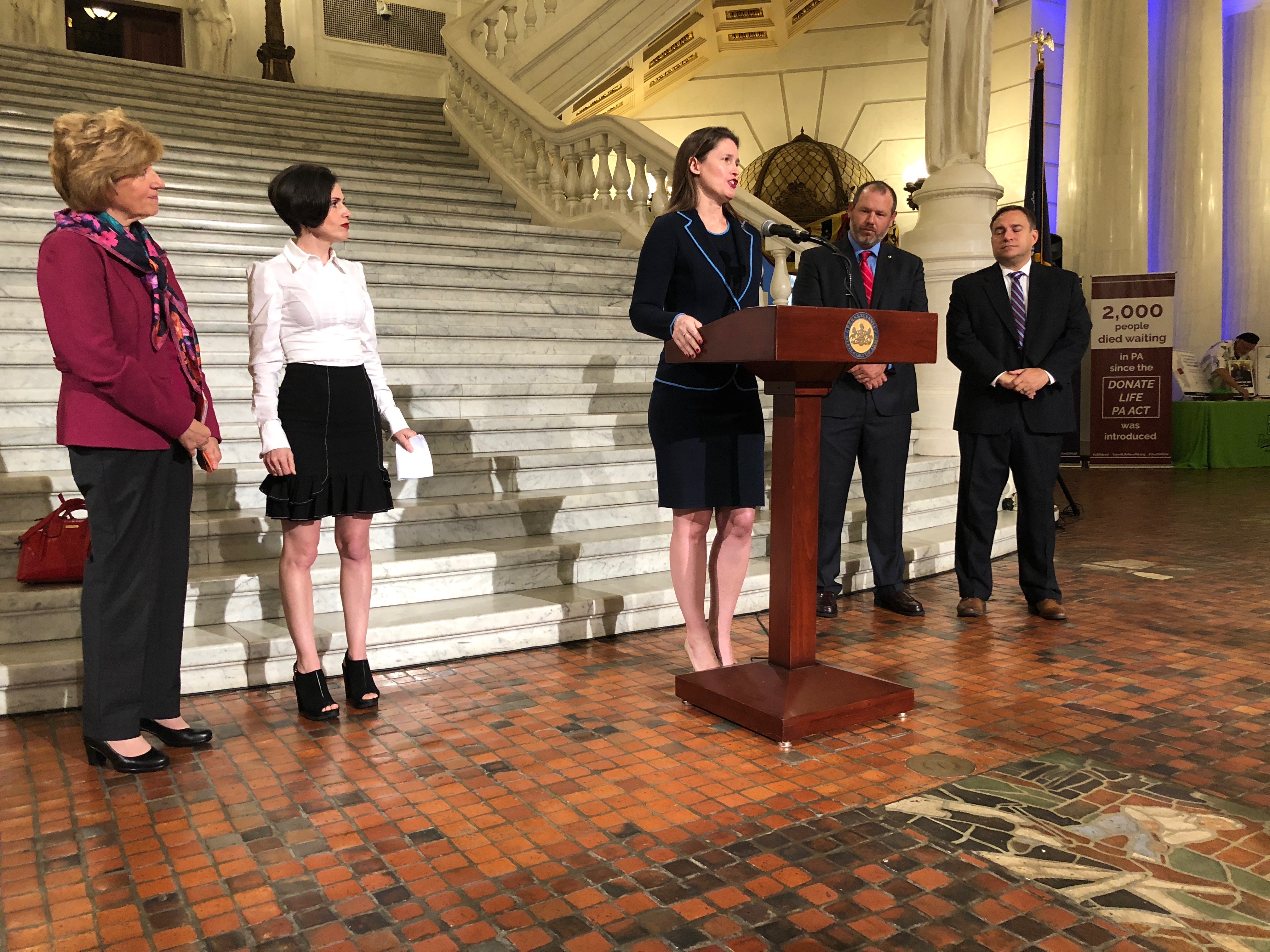
Amanda Parker Speaking at a Pennsylvania Press Conference
In order to end FGM and child and forced marriage in the U.S., we need to ensure that comprehensive legislation criminalizing such abuses passes at both state and federal level.
AHA Foundation’s legislative and policy advocacy is a central component of our work.
Throughout 2018, our experts have traveled around the country to meet with hundreds of legislators, policymakers, and community leaders and offer insights and expertise on FGM and child marriage.
We hosted three press conferences, and offered 11 written and three in-person testimonies in support of bills that could help eliminate FGM and child marriage in the U.S.
.
Legislative and Policy Advocacy Against Female Genital Mutilation
This year, AHA Foundation undertook numerous efforts at the federal level to fortify resources and provisions that address the practice of FGM. We sought bipartisan support from elected officials and developed a coalition of survivors and women’s organizations to strengthen our advocacy work.
We worked with a talented team of attorneys to support the first-ever federal prosecution of an FGM practitioner in United States v. Nagarwala and provided our supporters with updates as the trial progressed.
On the legislative front, we faced both success and setbacks. Our involvements in 2018 have shown that our work is far from over.
.
FGM Efforts at the Federal Level
United States vs. Nagarwala
This year, the movement to criminalize FGM in the U.S. was dealt a devastating blow. The district court judge presiding over a groundbreaking FGM trial ruled that the federal law criminalizing FGM was void on constitutional grounds. This highly publicized case, United States vs. Nagarwala, was closely monitored by AHA Foundation and we offered our supporters up-to-date information as events unfolded.
In mid-2018, Nagarwala’s defense team submitted a motion to dismiss all charges, arguing that the federal anti-FGM law was unconstitutional. Represented pro bono by White & Case, LLP, AHA Foundation responded with an amicus curiae (friend of the court) brief, which provided the court with background knowledge on the practice of FGM and argued in favor of the law’s constitutionality. Our brief was submitted and accepted by the court in November of this year.
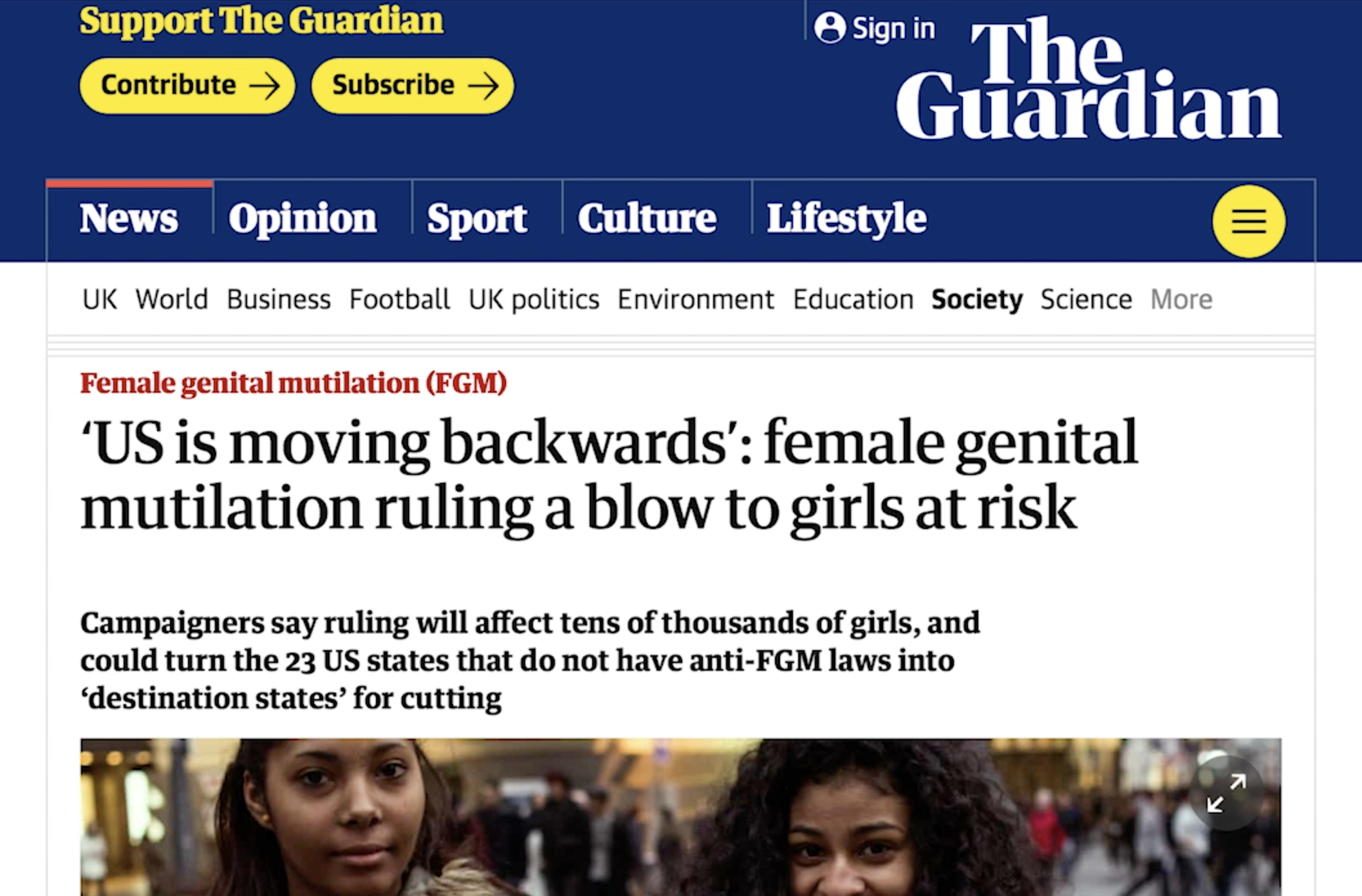 In a harrowing turn of events, the judge presiding over this case ruled in favor of the defense, arguing that the criminalization of FGM rested solely with the individual states; most charges against Dr. Nagarwala and others were dismissed as a result.
In a harrowing turn of events, the judge presiding over this case ruled in favor of the defense, arguing that the criminalization of FGM rested solely with the individual states; most charges against Dr. Nagarwala and others were dismissed as a result.
AHA Foundation experts warned that the judge’s ruling sent a grievous message that could negatively impact the rights of at-risk populations in the U.S.
This ruling is a disappointment, but it is not the end. An appeal is still possible, and we will continue to work closely with the White & Case team as the matter progresses. For the hundreds of thousands of girls and women in the U.S. that remain at risk, this federal law offered a layer of protection that has been left in jeopardy.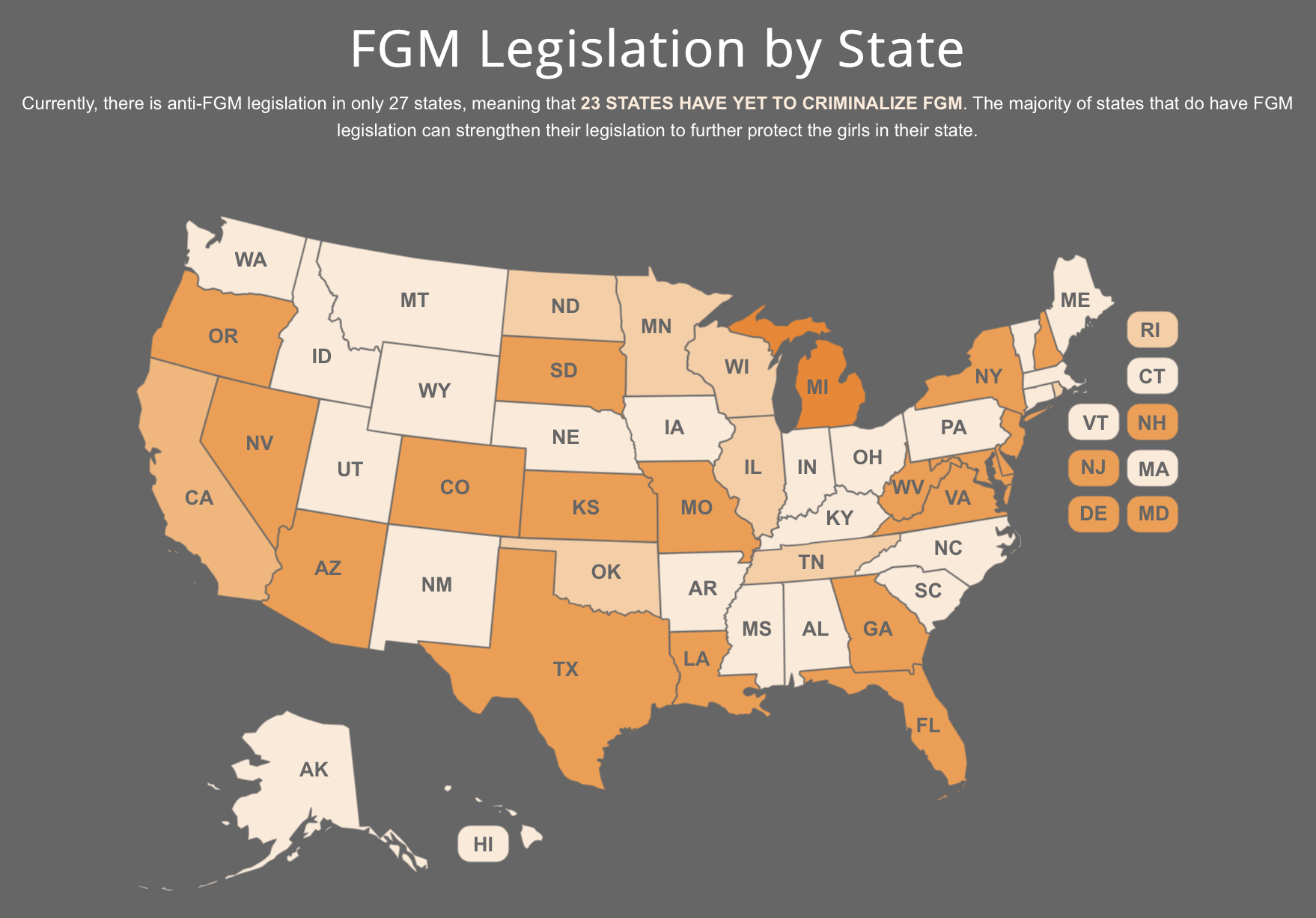
To date, 23 have failed to pass anti-FGM legislation – all of which could now become travel destinations for parents and guardians seeking to cut their girls. With help from our supporters, we will intensify our advocacy efforts at the state and federal level for more stringent laws that criminalize FGM.
AHA Foundation gathered bipartisan support to include anti-FGM provisions in the reauthorization of the Violence Against Women Act (VAWA). This federal bill has given zero attention to protecting girls from FGM in the U.S. since its inception 24 years ago. We worked closely with Chairman Charles Grassley’s team in the Senate Judiciary Committee office to ensure this inclusion by drafting language, holding numerous meetings with staffers, and providing feedback on versions of the reauthorization provisions that focus on prevention of FGM in the U.S.
We strengthened our advocacy efforts by founding and spearheading a network of women’s organizations and survivor/advocates that have pushed for the inclusion of comprehensive measures to protect women and girls in the United States from FGM as part of the federal reauthorization of VAWA.
Our network wrote a joint letter to Congressional leaders, urging them to include holistic measures to combat FGM in the United States as part of the reauthorization of VAWA.
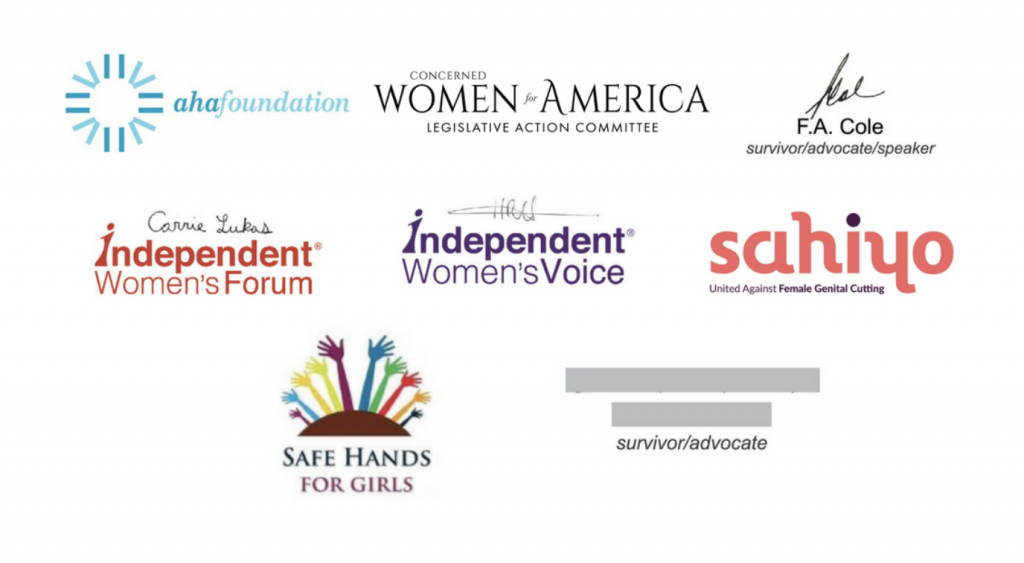
Coalition members advocating for FGM provisions in VAWA: AHA Foundation, Concerned Women for America Legislative Action Committee, F.A. Cole (survivor/advocate/speaker), Independent Women’s Forum, Independent Women’s Voice, Sahiyo (a survivor-led organization that fights FGM in the U.S.), Safe Hands for Girls (a survivor-led organization that fights FGM in the U.S.), and another survivor/advocate from Egypt.
AHA Foundation signed onto a letter with the Vital Voices Global Partnership urging the U.S. government to continue fighting for gender equality. This letter urges the Office of Management and Budget to increase funding to continue fighting gender-based violence globally. This includes FGM, and forced and child marriage.
AHA Foundation encouraged Senator Grassley’s office to sponsor the Stopping Abusive Female Exploitation (SAFE) Act, which increases the federal penalty for FGM from five to 15 years and encourages states to put in place mandatory reporting laws, and which passed unanimously in the House following introduction by Rep. Dave Trott and Rep. Carolyn Maloney. This December, Senator Grassley’s office moved to pass the legislation using a “hotline” procedure which creates the possibility of quickly passing the bill and passing it to the president for signature. We are hopeful we will see its passage this year.
We must make it clear to Americans and to the rest of the world that female genital mutilation will not be tolerated. The Centers for Disease Control and Prevention estimates that over 500,000 girls in the U.S. have undergone or are at risk of female genital mutilation. That’s 500,000 girls too many. We need to protect our girls, right here, in America, and increasing the penalty will go a long way in doing that.
– U.S. Representative Dave Trott, R-MI
FGM Efforts at the State Level
AHA Foundation has consistently monitored and supported a bipartisan approach to passing anti-FGM legislation at the state level. We have worked directly with state legislators to provide resources, information, and testimony concerning the practice and harms of FGM.
In 2018, significant progress has been made: New Hampshire and Ohio stood up against FGM and became the 27th and 28th state to ban FGM, respectively. Virginia passed a much-needed bill which strengthened their anti-FGM law from a misdemeanor to a felony. Pennsylvania made major strides in FGM criminalization, but there is still work to be done. California, Arkansas, and Washington started the process to put forward anti-FGM bills. Our experts advocated in all of these states and played a critical role in the drafting and passage of legislation.
While we applaud the work of legislators that came together to protect girls in their states against FGM, we are disheartened with results achieved in Maine where progress for this legislation has been stuck for several years.
Virginia
AHA Foundation staffers met with Virginia State Senator Black to lend our support to his efforts to increase the crime of FGM from a misdemeanor to a felony. This bill passed into law in 2018.
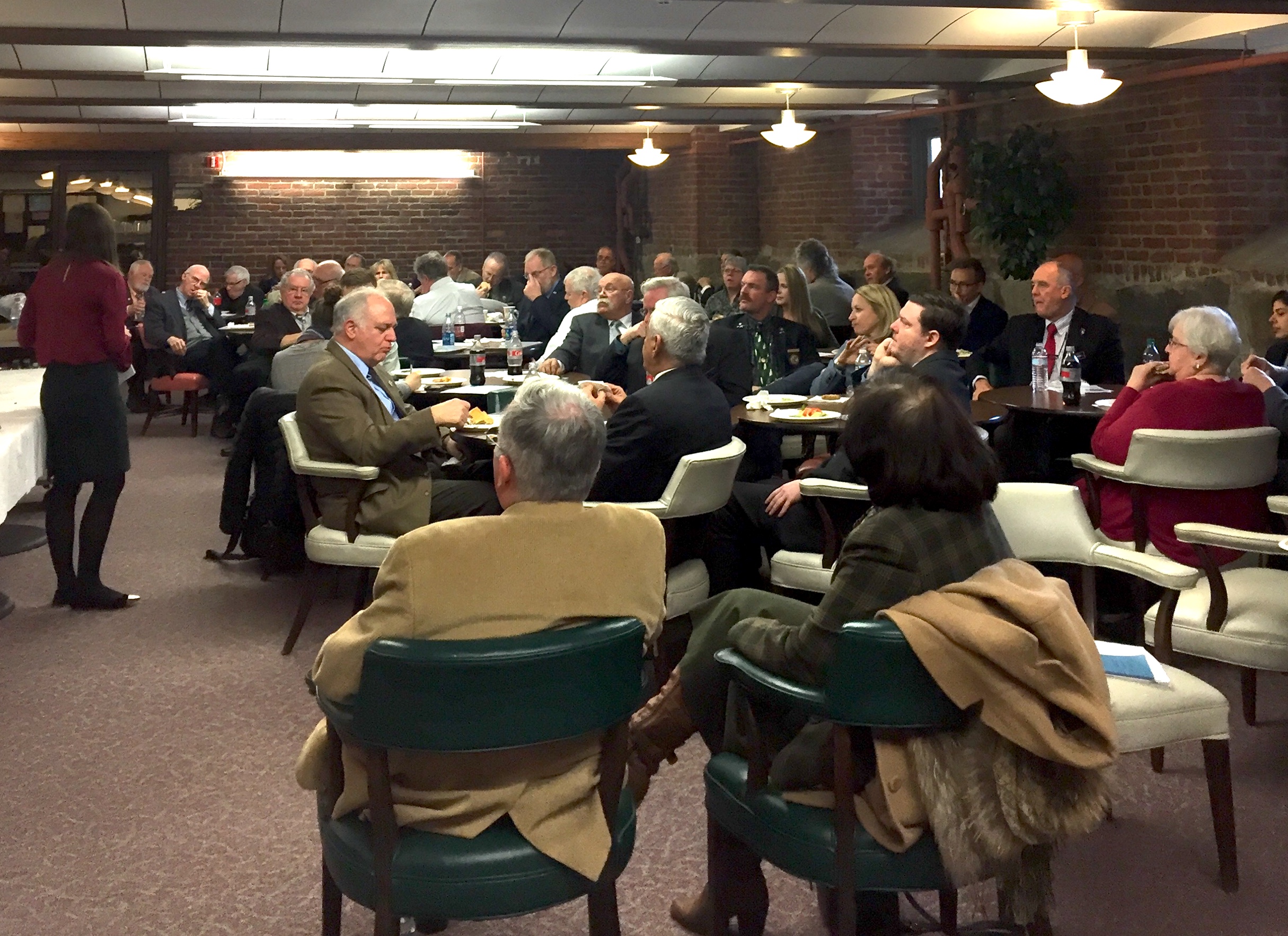
Alex Still with New Hampshire Lawmakers
New Hampshire
Throughout the year, AHA Foundation was actively involved in efforts to pass legislation in New Hampshire and we are happy to report that it became the 27th state to criminalize FGM. In January our experts hosted an event with almost 200 lawmakers, where they offered extensive information on FGM and made the case for strong state legislation that demonstrates zero tolerance for the practice. We served as a resource for the bill’s sponsor, offered testimony in favor of its passage, generated media attention throughout the legislative session, and reached out to other organizations to support the bill.
Ohio
AHA Foundation is pleased to see that lawmakers in Ohio passed the anti-FGM bill we have supported and provided guidance on for over a year. Ohio has 24,320 women and girls at risk. It follows only the state of Washington in having one of the highest rates of at-risk populations that are unprotected by anti-FGM legislation. This year, we submitted testimony before the House Criminal Justice Committee in support of SB 214, which would ban FGM in the state. The bill would criminalize performing FGM on a child, as well as transporting a child for the purpose of FGM. It also provides strong criminal penalties.
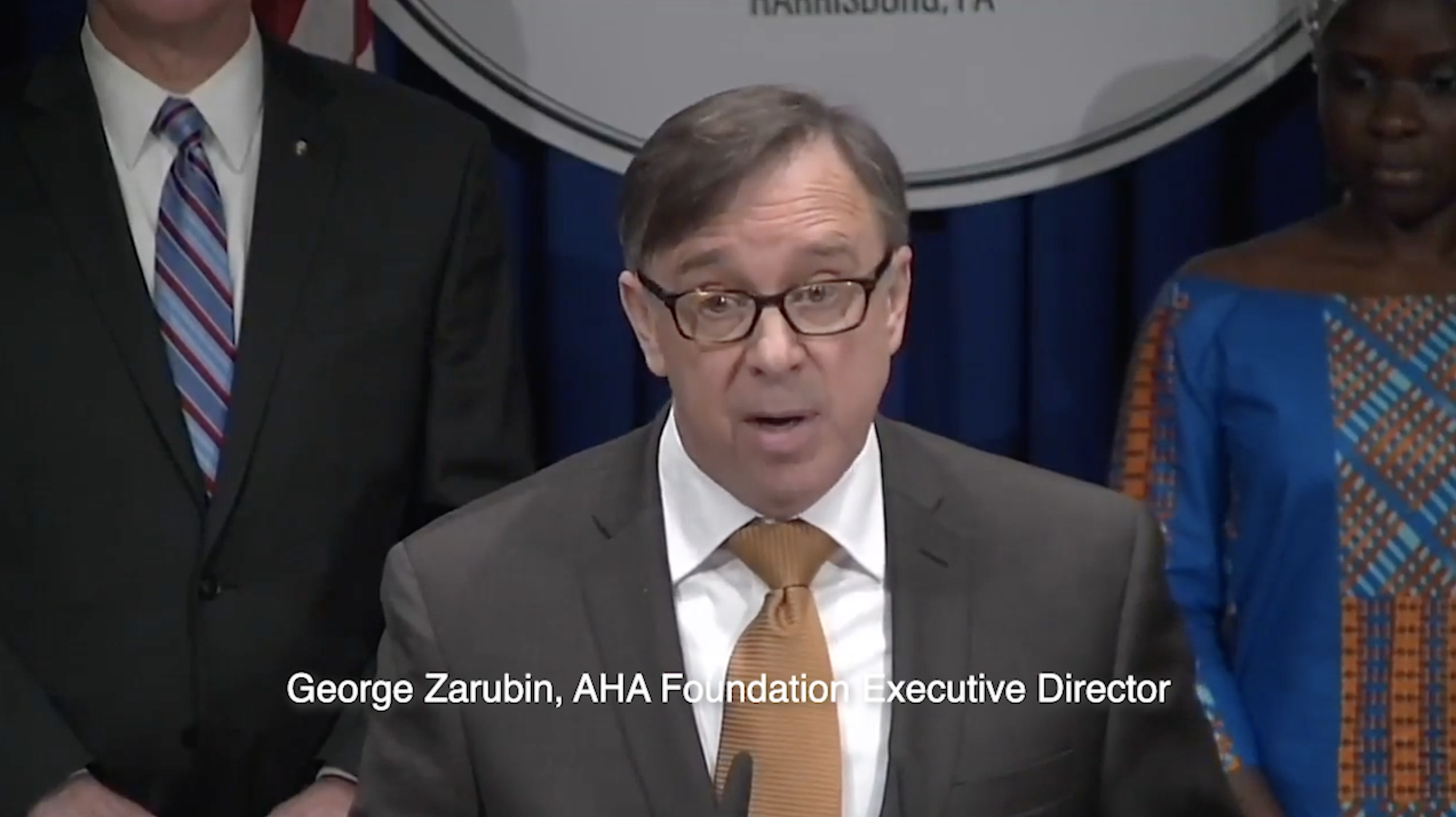
Executive Director George Zarubin Speaking at a Pennsylvania Press Conference Regarding Proposed Anti-FGM Bill
Pennsylvania
Throughout the year, we continually supported Representative Tom Murt in his effort to criminalize FGM in his state. We spoke at a press conference to pressure the House Judiciary Committee to move their FGM legislation forward, which had been stuck in the committee for over a year. The press conference was a huge success and was followed by personal meetings with AHA Foundation team members to each member of the Judiciary Committee’s office.
By the end of the 2018 legislative session, an anti-FGM bill passed in the House, and though it successfully passed through committee, it did not reach a vote in the Senate due to time constraints. Representative Murt has been resolute in his efforts to pass this legislation, and we are confident that an anti-FGM bill will reach a vote in both the House and Senate in 2019.
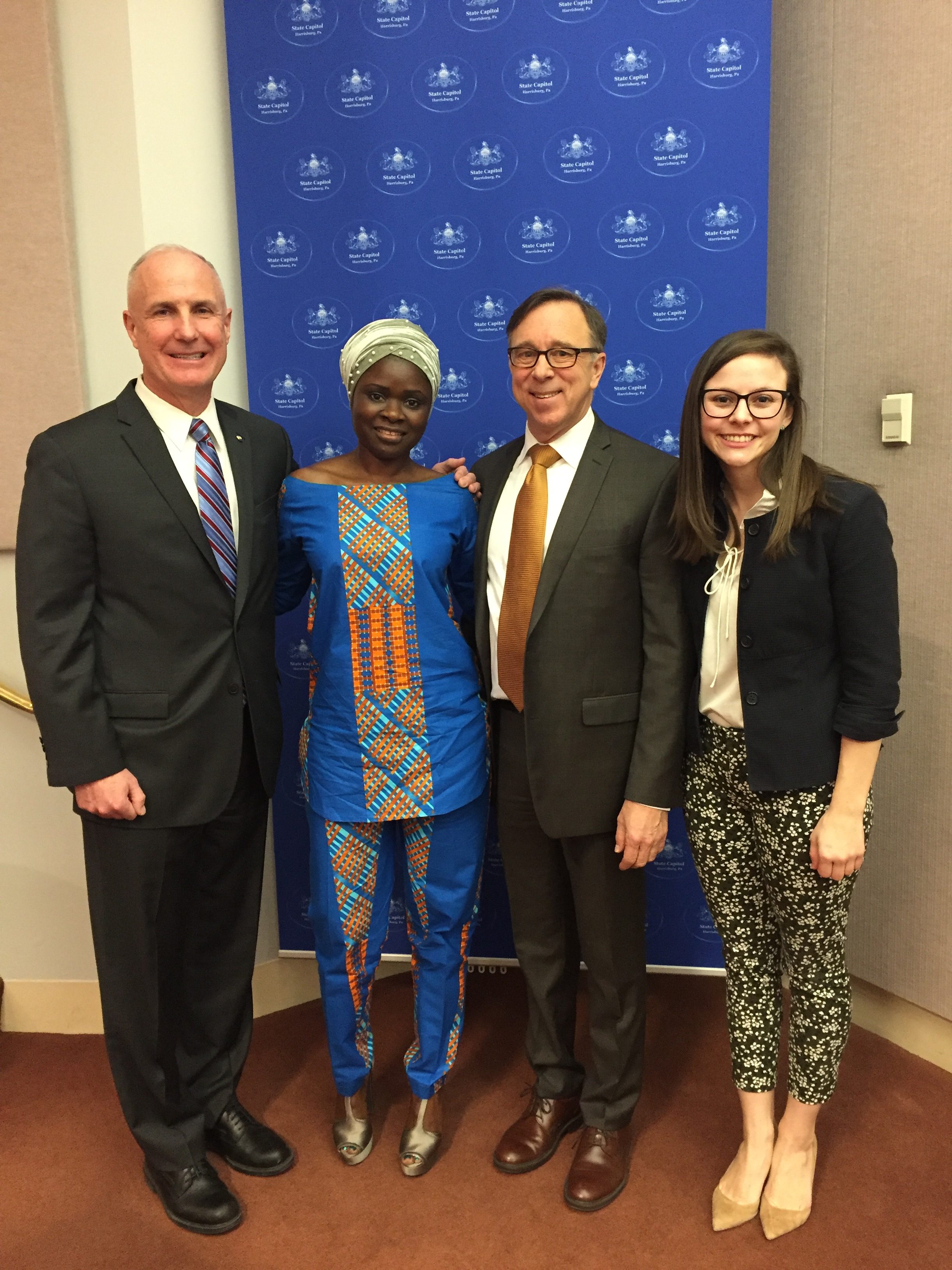
Our Voices are Stronger Together: Representative Tom Murt and FGM survivor F.A. Cole with Executive Director George Zarubin and Former Program and Policy Associate Alex Still While They Educate Lawmakers in Pennsylvania About FGM
California
In California, we did preparatory work for the 2019 legislative session by speaking with legislators about the possibility of putting forward the following two bills: The first would criminalize the transfer of a girl out of state for an FGM procedure. The second would clarify which health department is charged with conducting state mandated FGM education and outreach efforts. We have spoken with several interested legislators and are solidifying bill sponsors.
Arkansas
This summer, we identified a sponsor and co-sponsor for an FGM bill based on AHA Foundation’s model legislation. The bill will be introduced to the 2019 legislative session as the sponsor’s first bill ever presented in the Arkansas General Assembly. We have provided her with informational resources, offered an introduction on to what to expect when working on FGM legislation, and reviewed the draft bill produced by the co-sponsors. Next year, we will support the bill through all phases of the legislative process.
FGM is a human issue, not a partisan issue -Senator Breanne Davis, AR
Washington
In Washington, we worked with our bill sponsors for 2019 to support them with resources and knowledge about the practice of FGM. We also reached out to legislators who are essential for the passage anti-FGM legislation. Finally, we began planning informative sessions for legislators that are slated for 2019.
Maine
Our Senior Director, Amanda Parker, spoke at a press conference on FGM about the need for strong, comprehensive legislation that both criminalizes the practice and provides for education and outreach to communities, service providers, and law enforcement. She noted that anti-FGM legislation should be a nonpartisan issue. The Foundation also submitted testimony for a bill hearing in the Criminal Justice and Public Safety Committee. Unfortunately, for a second year in a row, the state of Maine was unable to unite against FGM.
.
Child Marriage Legislative and Policy Advocacy
AHA Foundation was the first to identify a dangerous federal visa loophole responsible for countless child marriages in the U.S. We are working diligently to obtain the exact number of child marriages that have taken place as a result.
At the state level, AHA Foundation’s 2018 efforts yielded noteworthy triumphs but there are still many hurdles to overcome. Forty-eight states still allow child marriage to take place.
This year, Delaware and New Jersey were the first to ban child marriage without exceptions. We provided written testimony in support of both bills.
We will continue to work with legislators in Pennsylvania, where we co-hosted a press conference and legislator breakfast, and hope it becomes the third state to pass a complete ban.
The outcomes in Tennessee, California, Florida, Maryland, and Louisiana highlight the challenges that come with advocacy against child marriage. Tennessee, California, and Florida all passed legislation that would still allow marriage before adulthood. Despite our efforts, legislators in Maryland and Louisiana failed to pass bills that set greater restrictions on child marriage.
AHA Foundation was the first to discover a dangerous loophole at the federal level that allows child marriage to take place. A minor who is a U.S. citizen is permitted to sponsor a visa for a spouse or fiancé(e), despite the U.S. Department of State’s position that the marriage of minors is a human rights abuse. Shockingly, there is technically no minimum age requirement for spousal visa sponsorship. This loophole leaves the most vulnerable – often girls promised to adult men – defenseless in situations where families offer U.S. citizenship in exchange for a marital agreement. We are seeking to close this loophole, and the first step would be to understand the scale of the problem – we need to know just how many children have been married as a result of these statutory deficiencies. In June of 2017, we submitted a Freedom of Information Act (FOIA) requesting this information from the government. We are still waiting for a response and have enlisted support from several federal Senators helping us to push for the release of the data. New Jersey and Delaware This year, New Jersey and Delaware became the first states to completely ban child marriage in the United States. AHA Foundation provided testimony on both bills and is excited to finally see progress in the U.S. towards ending child marriage, one state at a time. Amanda Parker Speaking at a Pennsylvania Press Conference Pennsylvania Children of any age in Pennsylvania can marry. This year, AHA Foundation visited state legislators to discuss the importance of ending child marriage, without exceptions. We co-hosted a press conference and legislator breakfast in Philadelphia with Unchained at Last, an advocacy organization dedicated to ending child and forced marriage in the U.S.. There, Amanda Parker engaged lawmakers about HB2542/SB1219, a bill designed to end child marriage, and successfully worked to secure co-sponsors for the bill. Unfortunately, the 2018 legislative session ended without bringing the bill to a vote, but we expect it to be reintroduced in 2019. Tennessee Tennessee has a high level of child marriage – one study showed that more than 8,000 girls were married between 2000 and 2014. Our Executive Director, George Zarubin, met with legislators to educate them on the harms of child marriage, and the Foundation also submitted written testimony for a bill that would ban all marriage for minors in the state. Unfortunately, the state did not pass the strong bill we supported this year and instead limited child marriage to 17-year-olds. Amanda Parker Testifies Against Child Marriage in Maryland Maryland In Maryland, AHA Foundation’s Senior Director and Executive Director both testified in support of strong child marriage bills in the House Judiciary Committee and the Senate Judiciary Proceedings Committee, respectively. Our Senior Director and former Program & Policy Associate also discussed the need to end child marriage with several legislators through personal office visits. Unfortunately, the state of Maryland for the third year in a row failed to protect children from marriage. Florida We continued our work in Florida on child marriage this year and saw the state limit, but not end, child marriage. As one of the key members in the Florida Coalition to End Child Marriage, with other organizations including Human Rights Watch, Unchained at Last, Florida National Organization for Women, as well as local activists and survivors, we pushed for legislators to pass a bill to end all child marriage. Ultimately, Florida amended and then passed a bill that limited child marriage. The governor signed into law that 17-year-olds could marry with parental consent as long as the spousal age difference was no more than two years. Louisiana This year, AHA Foundation was an expert guest at a conference to end child marriage in the state of Louisiana. We provided information on the harms of child marriage and shed light on the bleak circumstances in the state concerning this human rights abuse – within a single decade, over 4,500 children as young as 12 are estimated to have been married in the Louisiana. We also supported legislation that would have prohibited child marriage by submitting testimony and visiting legislators to discuss the issue. Unfortunately, the bill did not advance in the legislative process this year, but the AHA Foundation and our sister organization, Unchained At Last, have identified a strong bill sponsor for next year. AHA Foundation’s 2019 efforts are focused on a handful of states that currently lack anti-FGM legislation. We are also continuing our efforts with legislators in states with existing anti-FGM laws in order to identify weaknesses in their provisions and offer solutions that would strengthen each law’s reach and efficacy. We will continue to encourage federal policymakers to include anti-FGM measures as part of the reauthorization of the Violence Against Women Act, and we will explore the idea of new federal legislation banning FGM to address constitutionality concerns. AHA Foundation has been working to support child marriage legislation and will continue to do so in 2019. We will continue to advocate for a brightline minimum age of marriage at 18 years old and will fight to see more states follow the lead of Delaware and New Jersey, first states to ban child marriage in the U.S. We will work with legislators to close the federal loophole allowing minors to sponsor visas for foreign-born spouses/fiancé(e)s, and will work towards limiting child marriage wherever possible on the federal level. AHA Foundation has experienced immense success with its campus program. Just over a year since the Critical Thinking Fellowship (CTF) was first developed, we have reached hundreds of thousands with a message that promotes Enlightenment thought, free and open-minded inquiry, human rights, and Islamic reform. We will continue to amplify those voices and ideas that break the silence, protect liberty, and celebrate dignity and help them reach, engage, and galvanize thousands of new minds on North American campuses and in public discourse. We will accomplish this by expanding our CTF program to more campuses in the years to come. AHA Foundation will organize groups of Muslim reformers, ex-Muslims, and intellectuals to create networks that promote new strategies to combat Islamism, a radical ideology that threatens Western civilization. As a result, cohesive, fortified groups will emerge to counter Islamism through the application of critical thinking, with specific strategies for moving forward. These efforts will strengthen the individual voices and their reach to broader audiences. . George Zarubin, Executive Director of the AHA Foundation At AHA Foundation, our goal is to promote and bring to life the important ideas of our Founder, Ayaan Hirsi Ali. We believe that goals like ending female genital mutilation and child marriage in the USA are achievable. We believe that the people of this country will rally around the banner of ending Islamic extremism. Our target is 2030! We want 2030 to be the year when we can all say that we have exposed the inhumanity of female genital mutilation, and further state that FGM is no longer practiced in the United States. In 2030, we also want to say that every child has the dignity to their childhood and that a ban on child marriages is the law of our land. Finally, in 2030, we hope we can announce confidently that there is a bipartisan consensus that Americans will not tolerate Islamism either at home or abroad. Please join us in reaching our goals by 2030. -George Zarubin, Executive Director We encourage you to learn more about AHA Foundation’s work at TheAHAFoundation.org, stay in touch with the movement by signing up for our newsletter updates, and join our conversations about issues related to gender-based violence and oppression on Facebook and Twitter at @AHAFoundation. Please encourage your friends and family to follow us as well. Together, we can put an end to FGM, child and forced marriage, and other horrifying practices that are hurting women and girls behind closed doors in American communities. Together we can relegate dangerous ideologies that are often used to justify these abuses to the past. Join us. Child Marriage Efforts at the Federal Level
Child Marriage Efforts at the State Level

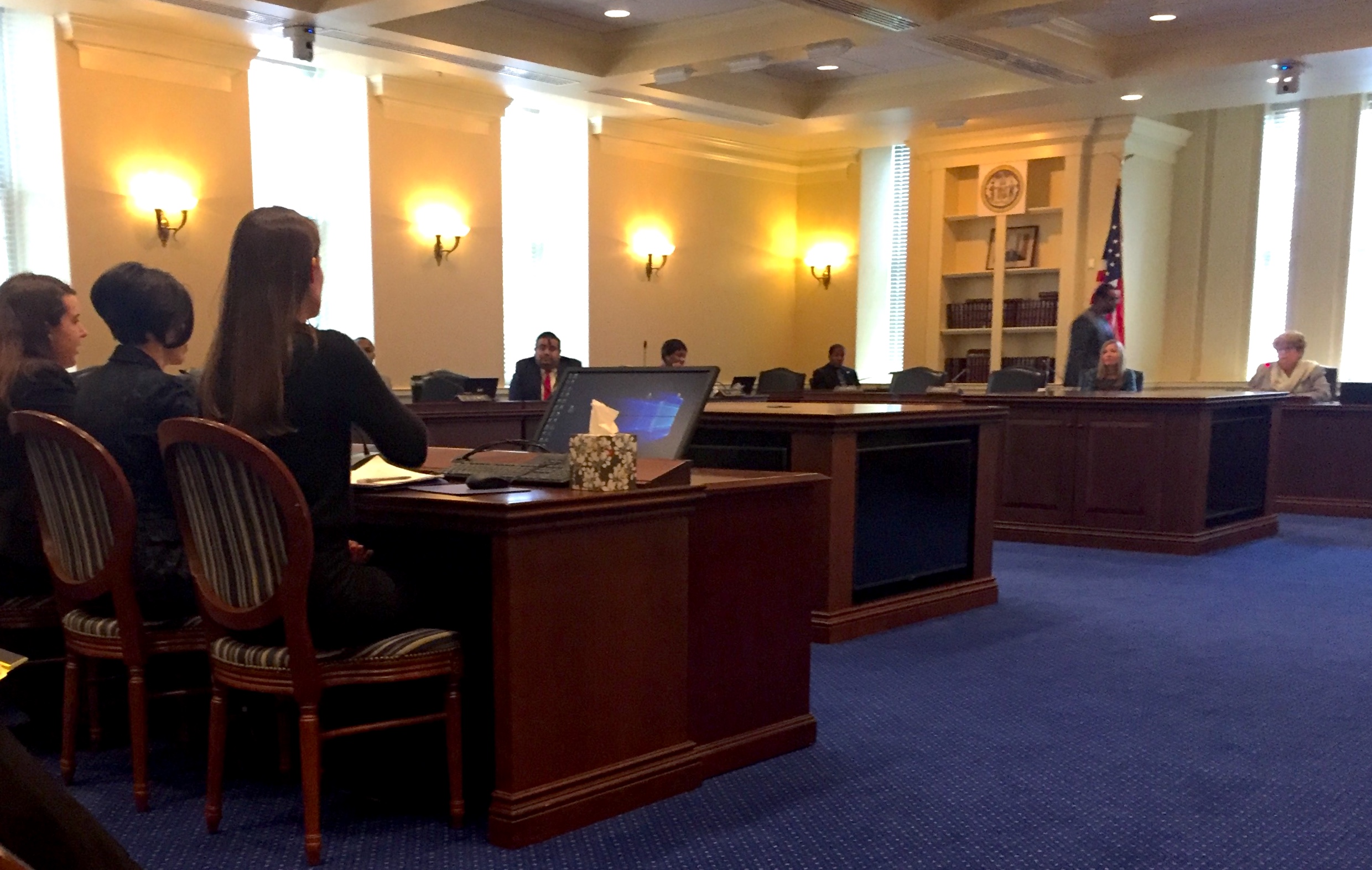
Looking Ahead to 2019
FGM Legislation
Child Marriage Legislation
Expanding Our Campus Program
Efforts to Align Muslim Reformers, ex-Muslims, and Stakeholders

OUR 2030 VISION
At AHA Foundation, we work to put Ayaan’s vision for the world into practice. It is because of our supporters that this is possible.
Support our work. Give a gift today.



